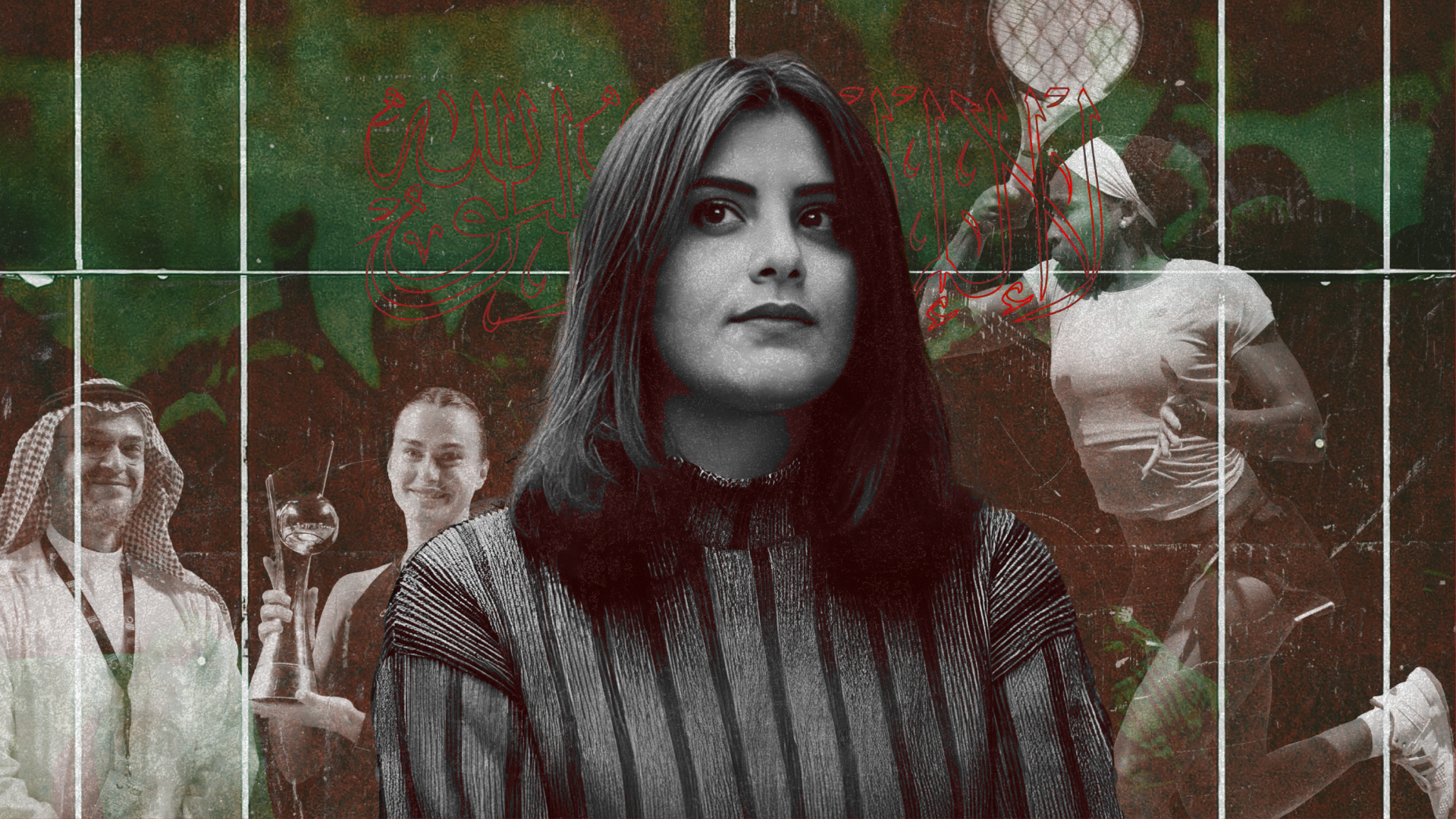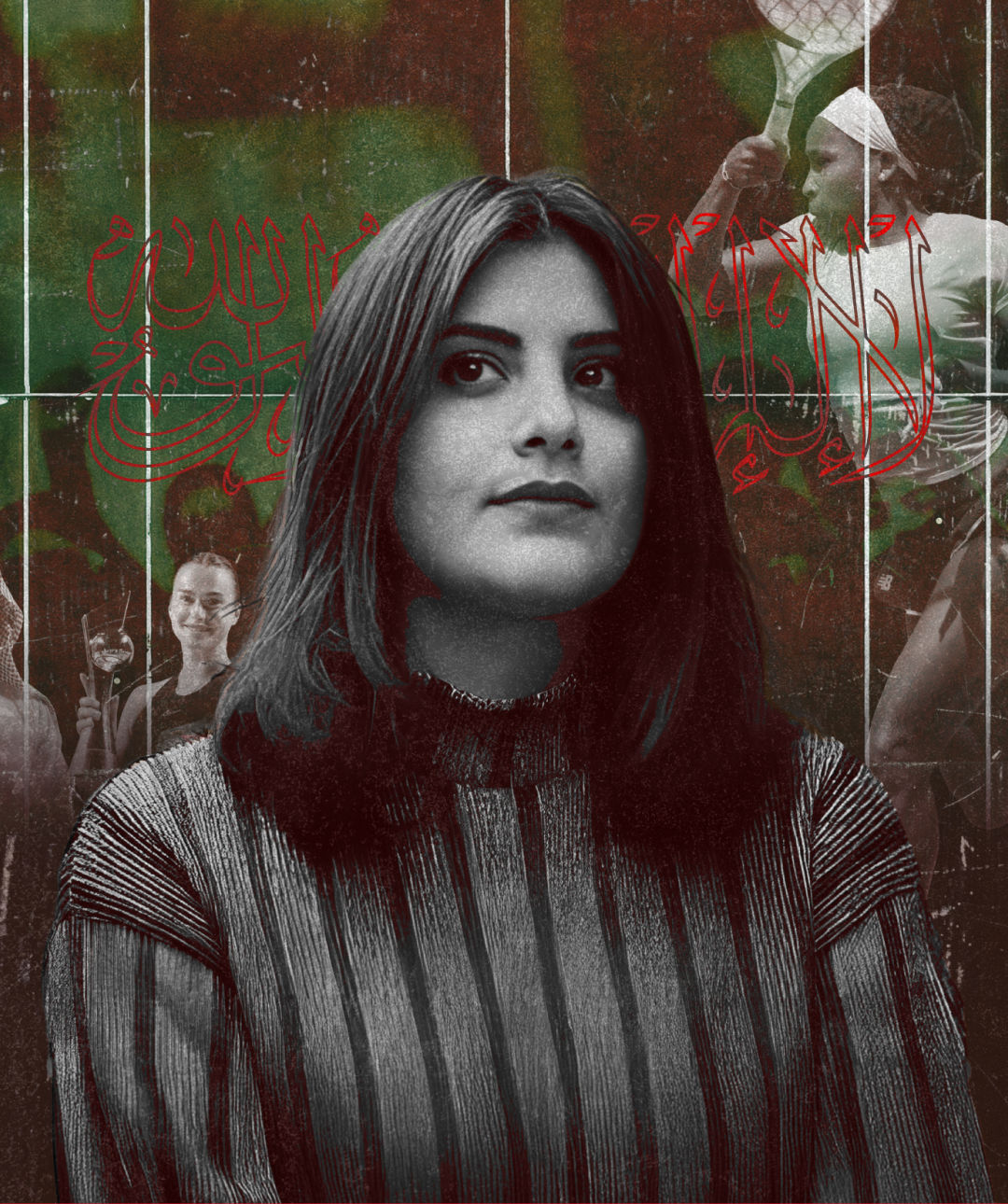

Welcome to The Playbook, an explainer series from HRF’s Sports & Dictators program that explores the intersection of sports and politics in authoritarian regimes and decodes the disturbing narratives behind the games we love.
–
When Saudi Arabia hosted one of the most important events in professional women’s tennis, the Women’s Tennis Association (WTA) Finals, in November, it wasn’t, of course, without controversy. The New York Times put it this way:
“For one night, the capital of an authoritarian, conservative kingdom where progress on women’s rights is still stop-and-go was about to be home to one of the most prestigious events in women’s tennis.”
Despite the fact that Saudi Arabia is notably hostile toward women, American sensation Coco Gauff — the youngest tennis player to win the WTA Finals in two decades — told the crowd at the King Saud University Indoor Arena in Riyadh that she believed the tournament would inspire young Saudi girls to believe “their dreams are possible.”
Saudi Arabia’s ambassador to the United States, Princess Reema Bandar Al-Saud, echoed Gauff’s comments, declaring that “by hosting the WTA Finals, we aimed to inspire women and girls across Saudi Arabia and beyond to embrace tennis not only as a sport but as a powerful tool for empowerment and community building.”
The thing is, though, the kingdom’s actions speak louder than words. And those actions tell women to not dream because they’ll only achieve what the men allow them.
Gauff was certainly coming from a sincere place; it’s just that her goodwill served the dictatorship of Saudi Arabia’s efforts to bolster its global perception as a country opening up to the world and making strides on women’s rights while it severely cracks down on women’s rights’ activists and maintains legal discriminations under the male guardianship system.
Saudi Arabia’s Sports Strategy
Over the past few years, Saudi Arabia’s Public Investment Fund (PIF—a sovereign wealth fund chaired by Crown Prince Mohammed bin Salman (MBS) — has invested billions across the sports landscape as part of the Crown Prince’s Vision 2030 national development plan, which aims to diversify Saudi’s economy and transform Saudi society into a modernized nation, linking sports, among other key industries, to the forging of a new national identity.
PIF owns an English football club, a golf league, and has lured some of the world’s biggest football stars, such as Cristiano Ronaldo and Neymar, to the Saudi domestic league. Saudi Arabia also hosts the world’s richest horse race, an annual Formula 1 race, marquee boxing showdowns, and will host the 2034 FIFA World Cup.
Tennis is among the latest sports that the kingdom has taken an interest in. Domestically, Prince Reema has claimed that 15,000 Saudi girls are playing tennis in schools for the first time, and in January, Saudi’s tennis federation signed 22-time Grand Slam champion Rafael Nadal as its global ambassador.
“Everywhere you look in Saudi Arabia, you can see growth and progress, and I’m excited to be part of that,” Nadal said in a statement published by the federation.
Four months later, the WTA and the PIF announced a multi-year partnership, which included hosting the season-ending WTA Finals in Riyadh between 2024-26. In the official press release, Mohamed AlSayyad, head of corporate brand at PIF, said the organization would “continue to be a catalyst for the growth of women’s sport.”
The WTA’s partnership with Saudi Arabia also signaled a surprising shift in women’s tennis, which had previously been reluctant to embrace a deal with the Kingdom. Former CEO Steve Simon criticized a potential Saudi deal before his departure, while women’s rights activists and former tennis champions warned in an op-ed for The Washington Post that Saudi was using tennis to distract from its continued human rights abuses.
A Facade of Reforms
In 2017, MBS announced a series of reforms loosening the restrictions on women’s freedoms as part of the ambitious Vision 2030 modernization initiative. The following year, women were allowed into select sports stadiums for the first time. Since then, Saudi has hosted women’s golf tournaments, the first-ever professional women’s boxing match, and the first-ever women’s road race, which saw the participation of 1,500 women.
Yet, at the same time that the kingdom was hosting these splashy events and marketing these openings, it was relentlessly cracking down on Saudi women at the forefront of combatting the lingering oppressive laws that reduce women to second-class citizens.
A prominent example is Loujain Al-Hathloul, a pioneering leader of women’s struggle to gain the right to drive in the kingdom. She was imprisoned in 2014 for her activism and conditionally released in 2021. She has, however, been serving out — no tennis pun intended — a five-year travel ban since. Other examples include Salma al-Shehab, a PhD student and mother of two who was sentenced to 34 years in prison for critical tweets, and Manahel al-Otaibi, a 29-year-old fitness instructor who was sentenced to 11 years in prison for supporting women’s rights.
These are a few names among many other prisoners of conscience in Saudi jails. In addition, Saudi authorities have ramped up death penalty executions.And though male guardianship laws have loosened, the paternalistic system remains codified in law. Saudi Arabia continues to use sports to present a facade of reform.
Hit enter to search or ESC to close